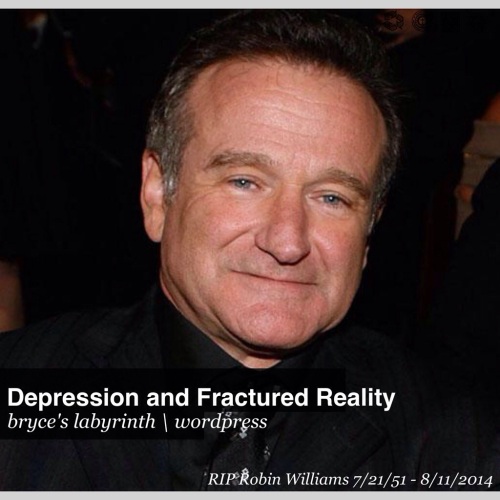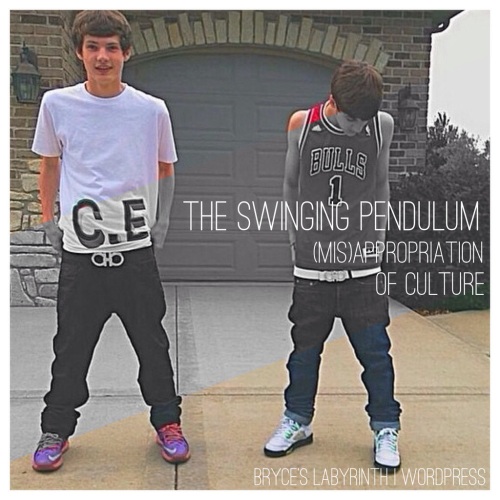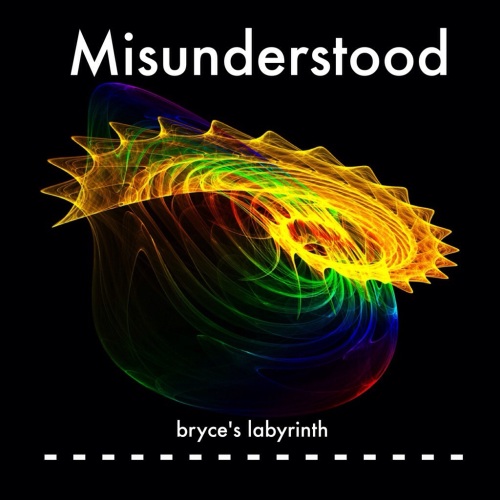Addicted to Belief
“He gazed up at the enormous face. Forty years it had taken him to learn what kind of smile was hidden beneath the dark mustache. O cruel, needless misunderstanding! O stubborn, self-willed exile from the loving breast! Two gin- scented tears trickled down the sides of his nose. But it was all right, everything was all right, the struggle was finished. He had won the victory over himself. He loved Big Brother.” – Orwell, 1984.
In Decision Theory, there is an exercise, a game, called The Dictator Game. In this situation, Person A, known as the Proposer, and Person B, known as the Responder, are allocating a certain amount of money. However, in this game the money is not decided by both parties, it is decided by the Proposer. What makes the Dictator game so interesting is that the reason the money is allocated by the Proposer is because he or she did something to earn that right; i.e. they performed some task such as finishing in the top 25% of their class on an assignment. From there, they are given the autonomy to decide “splits;’ although in quotidian interaction, reciprocity says to split the money 50/50 (much as its done in a similar game in which no meritocracy is imposed), the game rarely plays out that way. The Proposer may give the Responder some but very rarely is a half doled out.
Belief systems are as old as the human condition itself. They span myriad cognitive domains and they envelope every single facet of human behavior. You would be hard-pressed to find a human action that was not intimately tied to an arbiter’s belief system. The spurious aspect of belief systems is the not wholly true notion that we are in complete control of what we think, feel, or believe. Modern science has had much to say on that front.
Over the last century, materialist doctrines such as behaviorism, eliminative materialism, and physicalism have all emerged to ascribe primacy to the physical structures of the brain. Most scientists that subscribe to these systems point out the obvious effect that brain structures have on our notion of the “mind”: you damage or stimulate a region of the brain and it will have serious affects on a person’s mental experience. Thus, it is a rather tenuous claim that someone possess the requisite dexterity to alter the physical functioning of the brain, especially those structures which fall outside of conscious control such as the brain stem and midbrain regions.
It is precarious, many argue, to say that one’s mind, one’s conscious experience as a bounded being, causes serious influence on the core of his being. Rather they contend that man operates as much more a machine than some free flowing expression of will.
Evolutionarily speaking, both the dictator game and brain function make complete and utter sense. It is for this reason that those who achieve higher status in life such as advanced degrees, better paying jobs, or fruitful relationships, especially after hard work, are so quick to silence someone who has not accomplished these things. There is a very tightly correlated value system between one’s personal progression and one’s hegemony over “relevant” or “requisite” knowledge. Whereas now dictator systems tend to mirror pure merit, that is someone achieving something, those dictator systems in the past were prepossessed by the bigotry of racism and sexism; but still, the facts ring true.
The human condition, with very, very few instances spared, is one that I have had to radically rethink since I began my journey into brain science. Prior to, I was inclined to believe in my own agency, my own ability to choose, however, while I have not totally abandoned will, I have come to grips that many of our reactions to life — many of our experiences in life — are woven into our brain structures. Our brain structures still possess a preponderance of the information passed on since the beginning of life — that is, we still hold onto many of those evolutionary characteristics endemic to the animal kingdom.
When you look at Dictator Bias, it makes intuitive sense. Because you have put in the work, you have a more relevant, more informed opinion than someone who does not. However, the curious component of the Dictator Game is that the reward and the merited activity are not intrinsically linked; why should you command a greater share of money for doing better in a class? It is my personal conviction that this arbitrary arrangement of effort and reward is a cardinal culprit in the sociocultural tensions our species seemed intractably involved in. Whether its the 99% versus the 1%, black versus white, or any variation of this mono-thematic status war, it is this arbitrariness that poses a problem.
Now, moving outside this particular theme and in to the larger picture that is simple effort and reward, again, the Dictator Bias makes sense. In this regard, the reward is not money but what the money represents, power. There is nothing more evolutionary valuable than power. Power places in an organisms hand the keys to the kingdom; the kingdom of reproduction. Alphas get to mate with the cream of the crop and therefore, competition boiled down to who could strut their fitness the best. Intrinsically built into the Dictator Game is the expression of fitness, that the Proposer had to perform at a certain level in order to gain the power.
Although it is easily to point to the Dictators in our lives — our bosses, professors, police officers, neighbors — too few of us take the time to see if we are Dictators in someone else’s life. The rules of social engagement tend to blur the lines for self-reflection because the duties that we are given are generally set in stone. For instance, a police officer is trained to be suspicious of everyone. Why? Because his job is to spot the cheat. But doesn’t that lead to profiling? Of course it does, it must lead to profiling because of how we normalize socialization. It leads to profiling because we have a norm in the first place. Police Officers, motivated by duty, motivated by a belief system which is more than likely reified by some hyper-vigilant circuit in his brain that he or she may or may not be aware of, will be on the lookout for those things which 1) don’t fit the norm 2) have historically been deviations from the norm. Urban, especially black males, fit that bill like no one’s business. Why? Because systematic oppression for a couple centuries will cause an entire subgroup to resent and teach that resent to their progeny: it is an exquisite model of the oscillatory aftermath of a well played out Dictator Game. Power shifts because human behavior is stable yet dynamic; as things shift and events occur, those dynamic changes spawn their own reactive narratives and so forth.
We then, again, come back to the evolution of the human and its brain. No longer are we just discussing socioculture or social dynamics; now we’re discussing proto-culture, that which culture is built upon.
Culture is not built upon the ethereal conscious; it is not built upon “free choice.” It is built upon the disproportionately unconscious processes which help form and mold the conscious processes. Thus, a flawed foundation almost always leads to a flawed fore-structure. Can one change their behavior? To an extent.
We as a species have become addicted to the improper ways of viewing our brains and our subsequent behavior. We have all become primed to talk about our decisions when many of our decisions are primed by what is going on underneath the surface. Am I advocating that we are all robots, a materialist position? No, I believe that things can be changed, but they cannot be altered until people know what is going on. The first step is realizing that your belief systems are as much outside of your conscious as they are integral to that conscious; therefore, one should relentlessly challenge what they think they believe. This is the indirect way that one can reteach their unconscious processing systems. As George Winston in 1984 came to realize, even the most rooted conviction can be altered: he can to love Big Brother. Brainwashing is the cheater’s way of doing things; I am an advocate for facing facts:
1) Much of our behavior is out of ignorance, we reinforce our ignorance by faithfully subscribing to the belief systems we build atop our ignorance;
2) The brain is more than capable of being the progenitor of our mind. The mind gives way to consciousness, ala Damasio, and you suddenly have a sapient being.
3) We have not fully shed our evolutionary roots and rightfully so, evolution gave us many great characteristics, like, you know, the continued will to live. However, this means as latent animals we must become conscious of our proclivity to tribalize, remain ignorant (see number 1), and judge based upon these tribalizations and ignorant modes of inquiry.
4) The brain is amazing, but it is not an apparatus of pure reality. As has been shown in more experiments than I can think of, the brain shows one what is pertinent to survival. Thus, the eyes have evolved to only let in visible light, the various structures of the nervous system work to remain within a certain homeostatic range, and we process information based on the evolutionary principle of approach or retreat. Advanced cognition integrates and complexifies, but really thats what the brain does.
5) Brain science does not have all the answers. Quite contrary. We are only scratching the surface; but, remember, as one continues to go through life: great claims require great evidence. If you are going to extrapolate about what the mind does or how it regulates behavior, be prepared to answer the tough questions. When a scientist says to you that what is happening in Ferguson is a classic case of evolutionary fitness, do not react with stupidity, consider the facts and think through their argument.
What I hope to inspire in this post is a general understanding that our behavior is not as spooky as we would like. It is highly, highly, extremely complex, but it is only so because so much of it has been hidden from light by the lack of technology. However, extremely complex things can be understood through measured inquiry, the kind of inquiry that sees that many of the reported spiritual phenomena come through activity in the temporal lobe. Does that mean God doesn’t exist? Of course not, but you would be mindful to address that as you come up with your theories as to why ecstatic experiences occur.
Beliefs are like drugs. They comfort us. They keep us composed when the situations we so often find ourselves in no longer make sense. They give us a sense of order; karma ensures that cosmic justice is served. But beliefs are skewed by the very systems which create them, it is dangerous to see your beliefs as objectively pure or untainted. Moreover, it is foolish to believe your belief system is “right.” A good scientist rarely says he or she is right; they simply point to their results and say their position is likely. Whereas something as fleeting as karma involves a lot of natural probability.
Be mindful of yourself; its a blessing to be able to do so, but also be aware that your self can just as easily be described as chemical reactions and electrophysiology. Its a very, very fine line between the physical-as-is and the sense of self as-experienced. 



